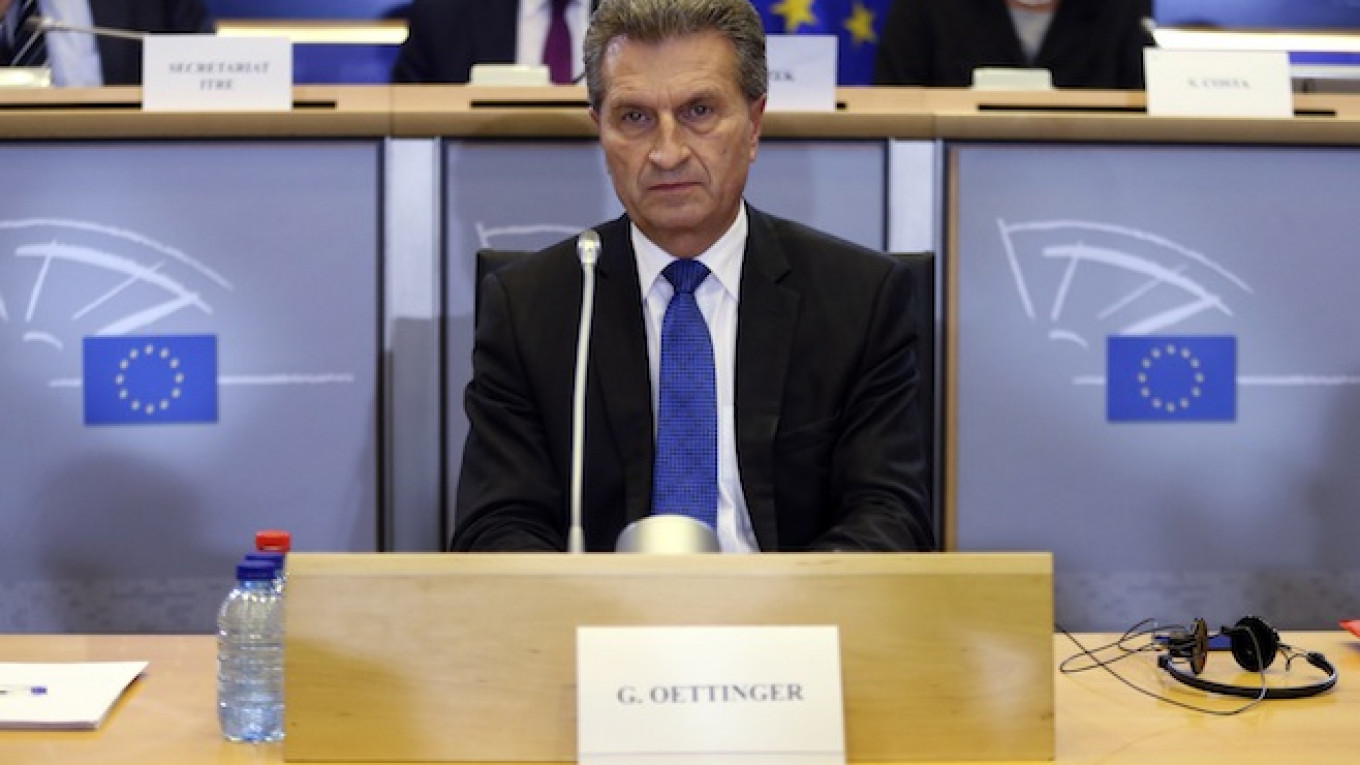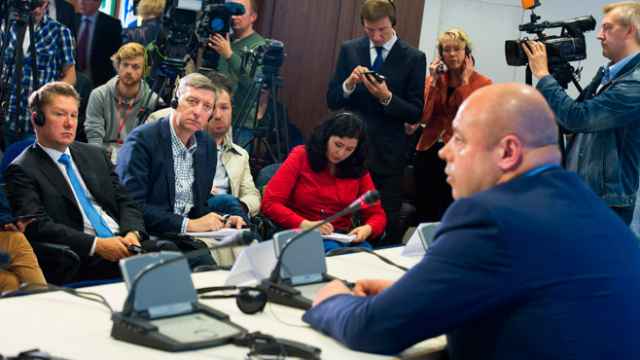BRUSSELS — Ukraine and Russia begin new natural-gas talks on Wednesday, but wrangling over Ukraine's upfront cash payments threatens to push a deal out of reach, even as temperatures have fallen below zero in Kiev.
Russian state utility Gazprom halted supplies to Kiev in June because of Ukraine's unpaid gas bill, which Moscow says is around $4.5 billion.
For months, the cutoff has had little impact. But pressure is mounting for a deal as peak winter demand looms and European Energy Commissioner GЯnther Oettinger, who has been mediating the talks, prepares to leave office at the end of the week.
The two sides came close in September, but then differences gaped wide last week over Kiev's ability to pay.
Oettinger told German television on Wednesday that there was a 50 percent chance of a breakthrough in the talks, which begin in the afternoon in Brussels. If he cannot broker a solution, it will be down to his successor, who takes office on Nov. 1.
Weekend elections returned a pro-Western parliament in Kiev, potentially stoking tensions with Moscow, although Russia's EU envoy, Vladimir Chizhov, said the mood could be more relaxed now the vote has taken place.
"During the last rounds of talks, let's not conceal it, the pre-election situation had its influence on Ukrainian side," Chizhov told news agency RIA Novosti. The only unresolved problem, he said, was where to get the money from for winter supplies.
Not Just the Money
Ukraine's Naftogaz has set aside $3.1 billion in a special escrow account to pay off a chunk of its debt to Gazprom, but Russia is also demanding prepayment for winter supplies before it is willing to turn the taps back on.
Kiev says it is working to raise more money from all possible sources of financing, including the European Union. The executive European Commission is considering Ukraine's request last week for a further loan of 2 billion euros.
But Kiev also says money alone may not be enough.
"I have an impression that the Russian side doesn't want to agree," Ukrainian Finance Minister Oleksandr Shlapak told reporters in Kiev on Tuesday.
Analysts also said it could be very hard to come up with enough assurances to satisfy Russia. Ukraine at the same time is pushing for written guarantees that any agreement on price will be lasting.
For all sides, there is much at stake.
Russia provides around a third of the European Union's gas, roughly half of which is shipped via Ukraine.
Ukraine in turn relies on Russia for around 50 percent of its own gas and despite storage has a winter shortfall of around 3 billion to 4 billion cubic meters, depending on the weather.
For Russia, the gas sector contributes about a fifth of the national budget.
Economic sanctions on Russia, which EU officials at a closed-door meeting on Tuesday decided to leave unchanged for now, are sapping an already weak economy. But Moscow could well be willing to endure much more hardship for political ends.
"Economic factors are generally not given precedence when national security concerns are at stake," Pasquale De Micco, a national expert from the European Parliament's policy department, said in a research paper on Europe's gas supply options.
"What is certain is that a gas war risks harming both parties in the short term, and that it would hamper future efforts to re-establish mutually trusting relations."
A Message from The Moscow Times:
Dear readers,
We are facing unprecedented challenges. Russia's Prosecutor General's Office has designated The Moscow Times as an "undesirable" organization, criminalizing our work and putting our staff at risk of prosecution. This follows our earlier unjust labeling as a "foreign agent."
These actions are direct attempts to silence independent journalism in Russia. The authorities claim our work "discredits the decisions of the Russian leadership." We see things differently: we strive to provide accurate, unbiased reporting on Russia.
We, the journalists of The Moscow Times, refuse to be silenced. But to continue our work, we need your help.
Your support, no matter how small, makes a world of difference. If you can, please support us monthly starting from just $2. It's quick to set up, and every contribution makes a significant impact.
By supporting The Moscow Times, you're defending open, independent journalism in the face of repression. Thank you for standing with us.
Remind me later.





